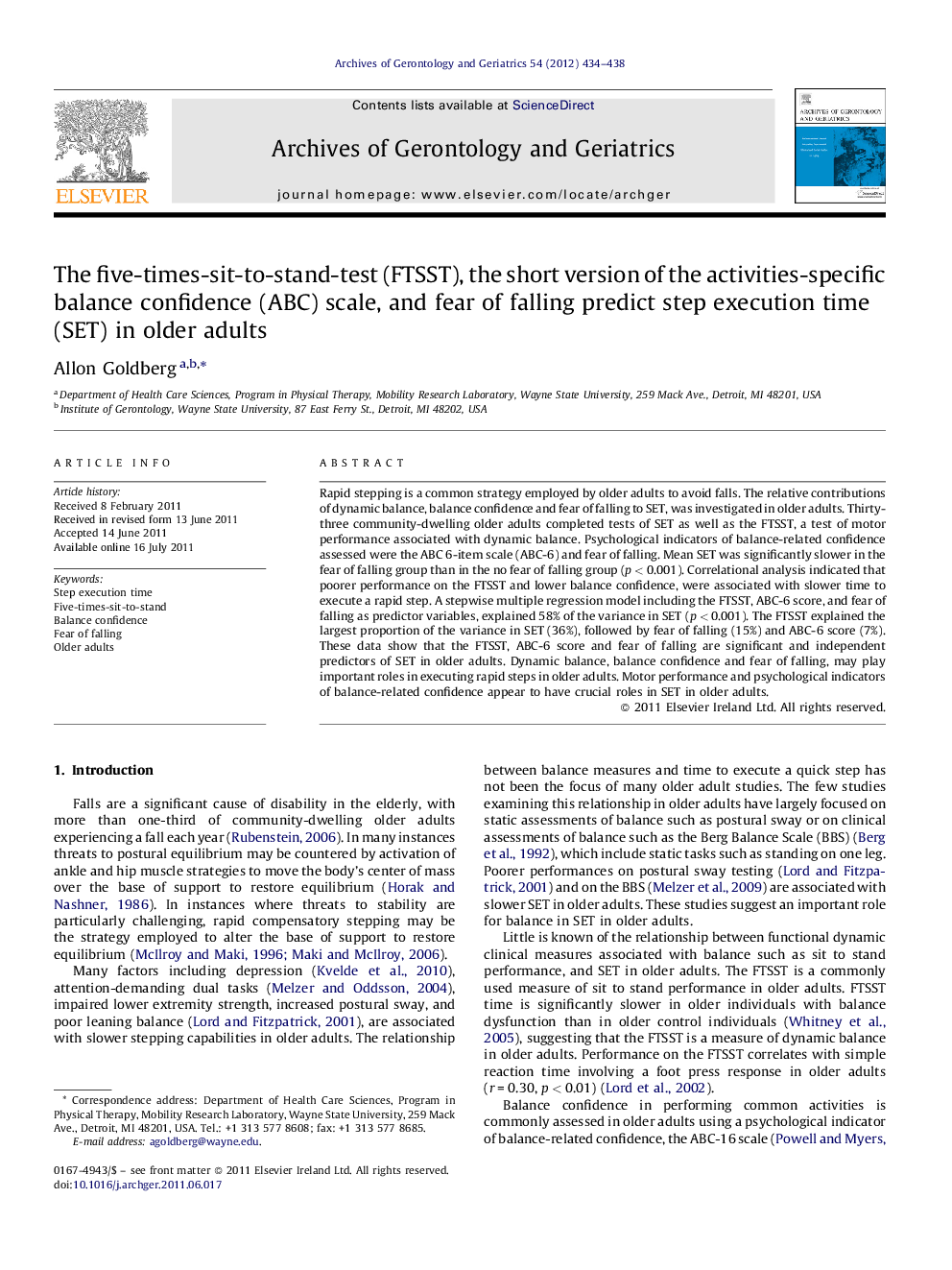| Article ID | Journal | Published Year | Pages | File Type |
|---|---|---|---|---|
| 1903239 | Archives of Gerontology and Geriatrics | 2012 | 5 Pages |
Rapid stepping is a common strategy employed by older adults to avoid falls. The relative contributions of dynamic balance, balance confidence and fear of falling to SET, was investigated in older adults. Thirty-three community-dwelling older adults completed tests of SET as well as the FTSST, a test of motor performance associated with dynamic balance. Psychological indicators of balance-related confidence assessed were the ABC 6-item scale (ABC-6) and fear of falling. Mean SET was significantly slower in the fear of falling group than in the no fear of falling group (p < 0.001). Correlational analysis indicated that poorer performance on the FTSST and lower balance confidence, were associated with slower time to execute a rapid step. A stepwise multiple regression model including the FTSST, ABC-6 score, and fear of falling as predictor variables, explained 58% of the variance in SET (p < 0.001). The FTSST explained the largest proportion of the variance in SET (36%), followed by fear of falling (15%) and ABC-6 score (7%). These data show that the FTSST, ABC-6 score and fear of falling are significant and independent predictors of SET in older adults. Dynamic balance, balance confidence and fear of falling, may play important roles in executing rapid steps in older adults. Motor performance and psychological indicators of balance-related confidence appear to have crucial roles in SET in older adults.
